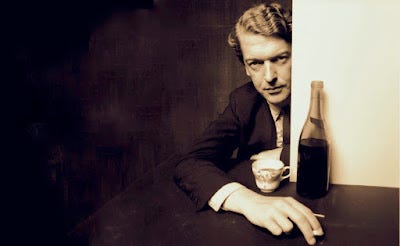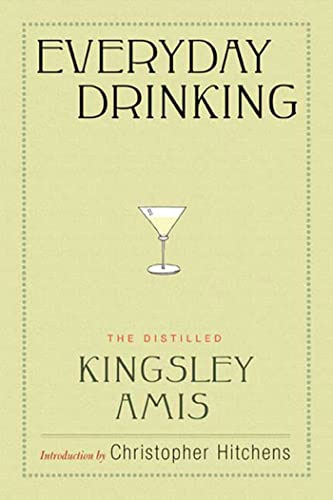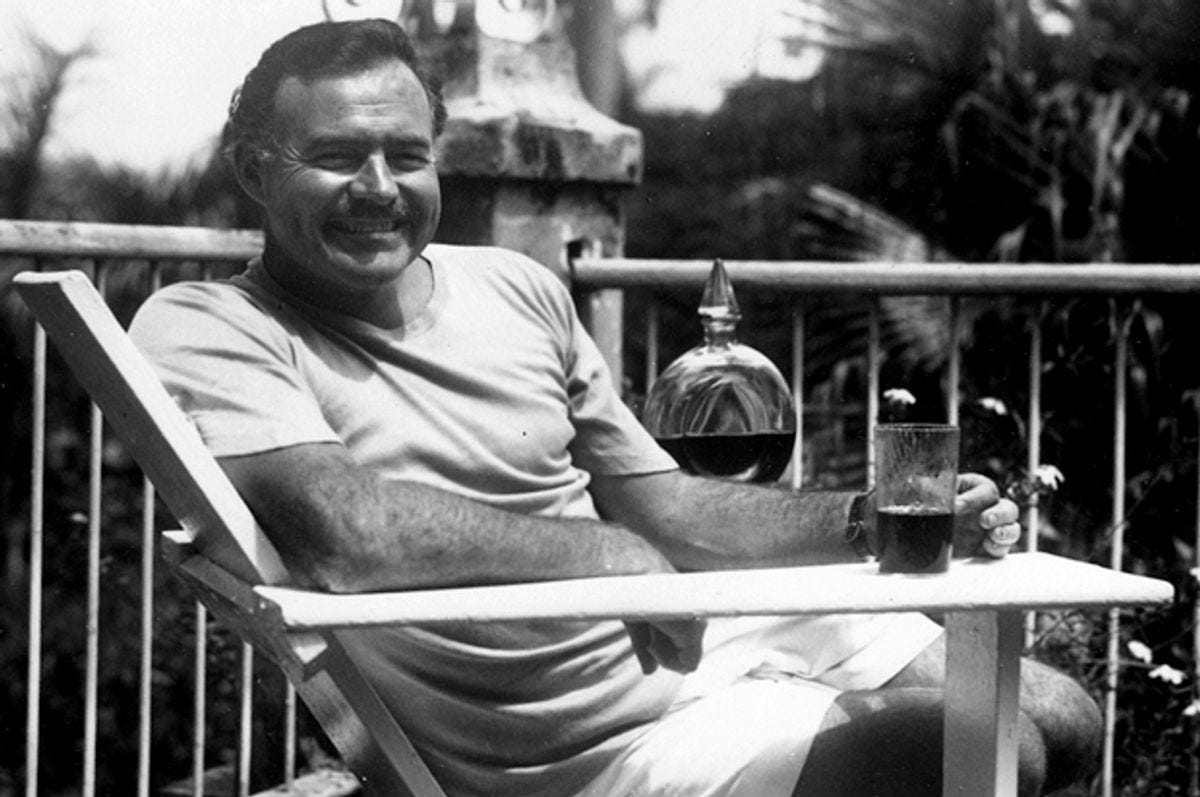On Drunken Sobriety
What's the allure of losing control?
No writer has written more deliciously of the pleasures of drinking than Kingsley Amis.
In his collected columns on the subject, Everyday Drinking (alcohol was the novelist’s great hobby and subject) he describes the culture of alcohol as one of great spirits, in every sense of the word.
“With alcoholic ritual, the whole point is generosity,” he wrote. “If you open a bottle of wine, for heaven's sake have the grace to throw away the damn cork.”
With Amis, drink appears as a friendly companion, one who enlarges us, grants us courage and humor, and who makes magic out of mere matter.
READ
I loved this book, and the lighthearted touch Amis brought to his great pastime. It reflected (and encouraged, modestly) my own tendencies. Whisky or wine was a daily companion for many years.
But for reasons familiar, I’m sure, to many of you, I’ve decided for the last two years to find that quality of drunkenness—the beautiful, loose, dangerous Bacchic spirit—somewhere else.
It happened after my wife was found to be carrying twins, an unexpected (and intimidating) blessing after our first son.
I wanted to tell her that, much as she was being asked to do something that seemed impossible, I would do the same.
To my surprise, I did it.
What’s even more surprising is I that I haven’t missed the taste.
What I especially do not miss is what Amis describes as “that ineffable compound of depression, sadness (these two are not the same), anxiety, self-hatred, sense of failure and fear for the future” that follows a loose night.
I suspect a time will again come when, Amis-like, I will keep a bar stocked with liquor.
But for now, I can enjoy the drunkenness that comes not from a decanter of rum (as with Hemingway below), but from the exhaustion, strain, and ecstatic relief that mark the ends of most days as a father of three young boys.
WATCH
Kingsley’s son, Martin Amis, died last year.
A novelist like his father, he also shared the elder’s sense of humor, and his fine savor for language.
See how he describes his formula for perfecting a sentence in this video from the later years of his life.
Listen
Even outside of fatigue, I believe there is such a thing as sober drunkenness. Anytime there’s a loosening of control, a staggering, jolly, broadness of mood, a goofy happiness—you may be called drunk. (My children get this way around 6PM every day.)
This dry inebriation is well captured in music.
Behold Chopin’s “Wrong Key” étude, played here in all its sloppy exactitude by Sviatoslav Richter.
Tell me: What did you enjoy reading, writing, or watching this week?





